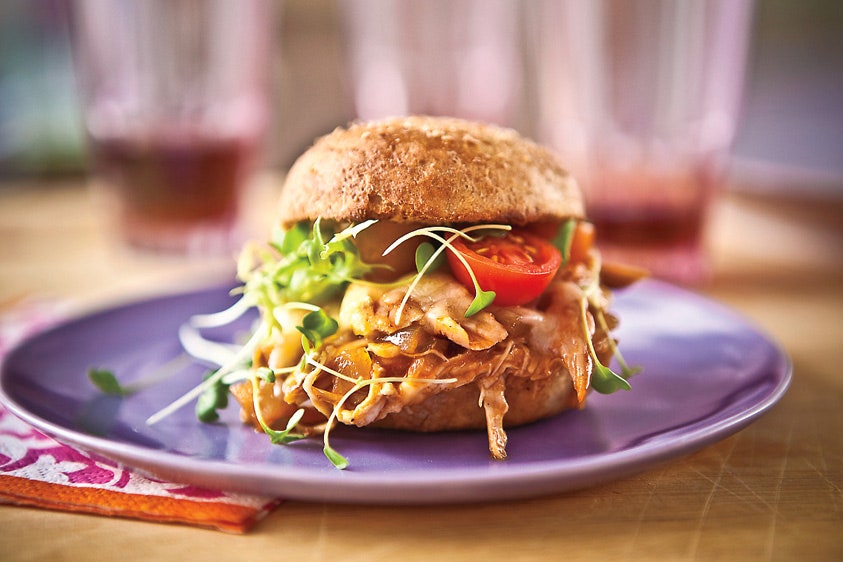Chicken and Cheese Sliders

Nutrition per Serving
0
Calories
0g
Protein
0g
Carbs
0g
Fat
Recipe by /contributors/jennifer-iserloh
How they fight fat Chicken and cheddar both pitch in. The protein in poultry helps burn fat, and cheese has two slenderizing perks: Calcium breaks down fat, as linoleic acids stoke metabolism.
Ingredients
Vegetable oil cooking spray
1 green bell pepper, chopped
1/2 medium red onion, chopped
2 cloves garlic, chopped
1 bone-in skinless chicken breast (about 6 ounces)
1/2 cup store-bought barbecue sauce
1/4 can (7 ounces) chipotle peppers in adobo sauce
8 small whole-wheat buns (such as Pepperidge Farm Wheat Sliders)
1/2 cup grated aged cheddar
8 cherry tomatoes, sliced
2 cups sprouts (such as arugula or broccoli)
Instructions
Coat a medium saucepan with cooking spray. Cook bell pepper, onion and garlic in pan over medium heat, stirring, 3 minutes. Add chicken, barbecue sauce, chipotles and 1/4 cup water; cover and simmer until chicken reaches an internal temperature of 165 °:F, 25 to 30 minutes. Remove chicken from sauce; place on a plate to cool for 5 minutes. Use a fork to pull meat off bone and shred; return meat to pan and toss to coat with sauce. Heat oven to 400 °F. Open buns and set on a baking sheet covered with foil. Distribute chicken evenly among bottom half of each bun (about 2 tablespoons per bun); top each with 2 tablespoons cheese. Bake until cheese melts and bubbles, 4 to 5 minutes. Top with tomatoes, sprouts and bun cap; serve immediately.
Stop Second-Guessing Every Meal
Get a personalized eating plan for YOUR PCOS type. Know exactly what to eat this week.
Personalized for your PCOS type
Delivered in 24 hours
Just $9 one-time
No subscription. No commitment.
Not sure what to eat for PCOS?
Take a 60-second quiz and get a personalized 7-day meal plan.
Take the Quiz
Comments
Register or log in to add a comment